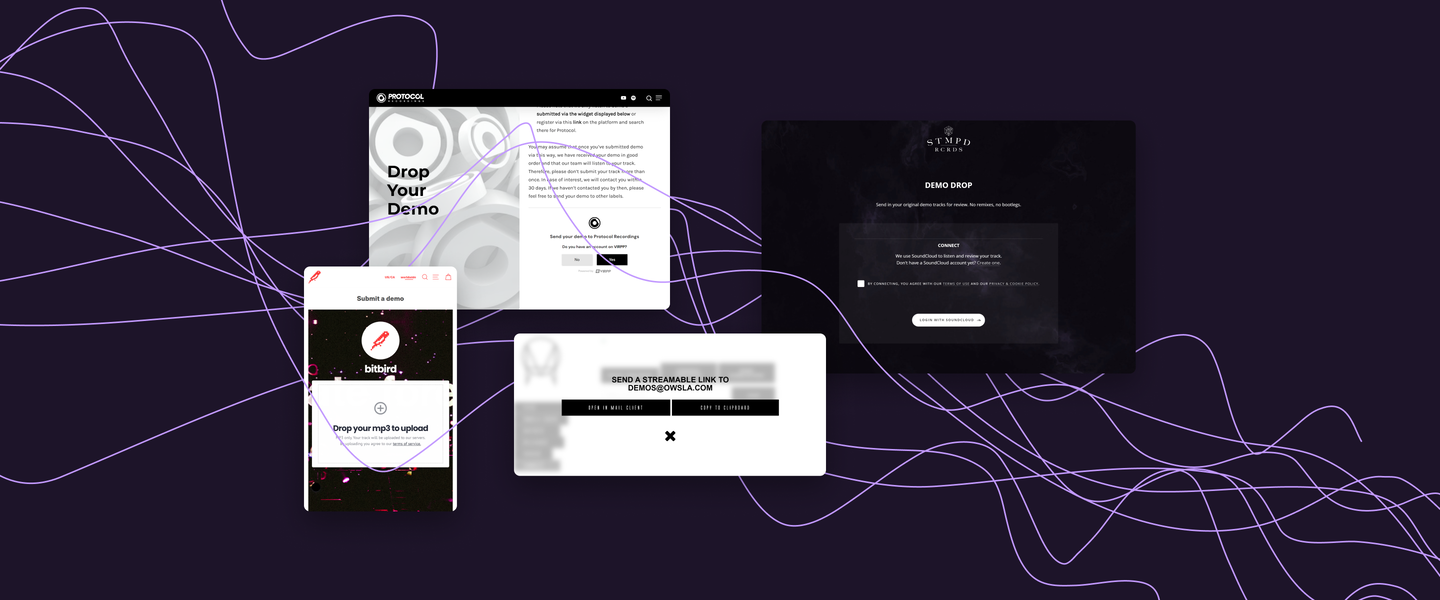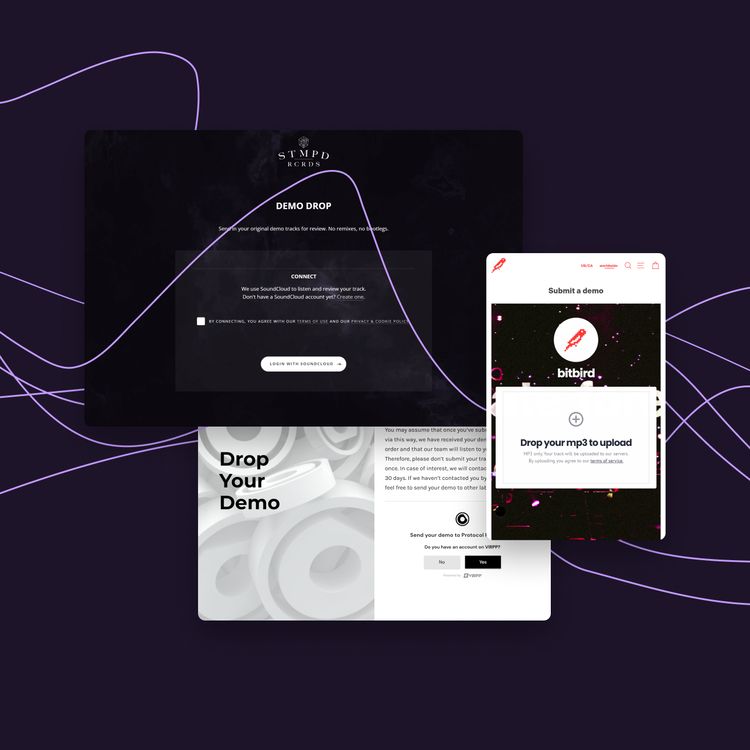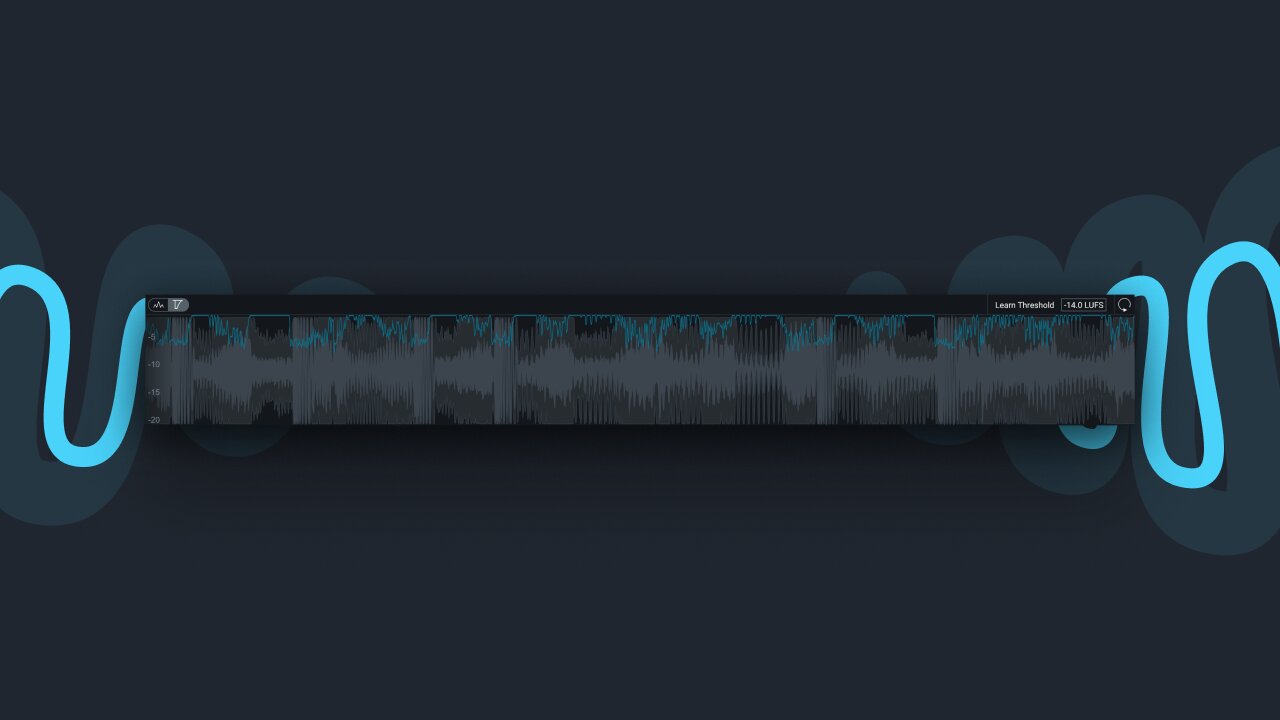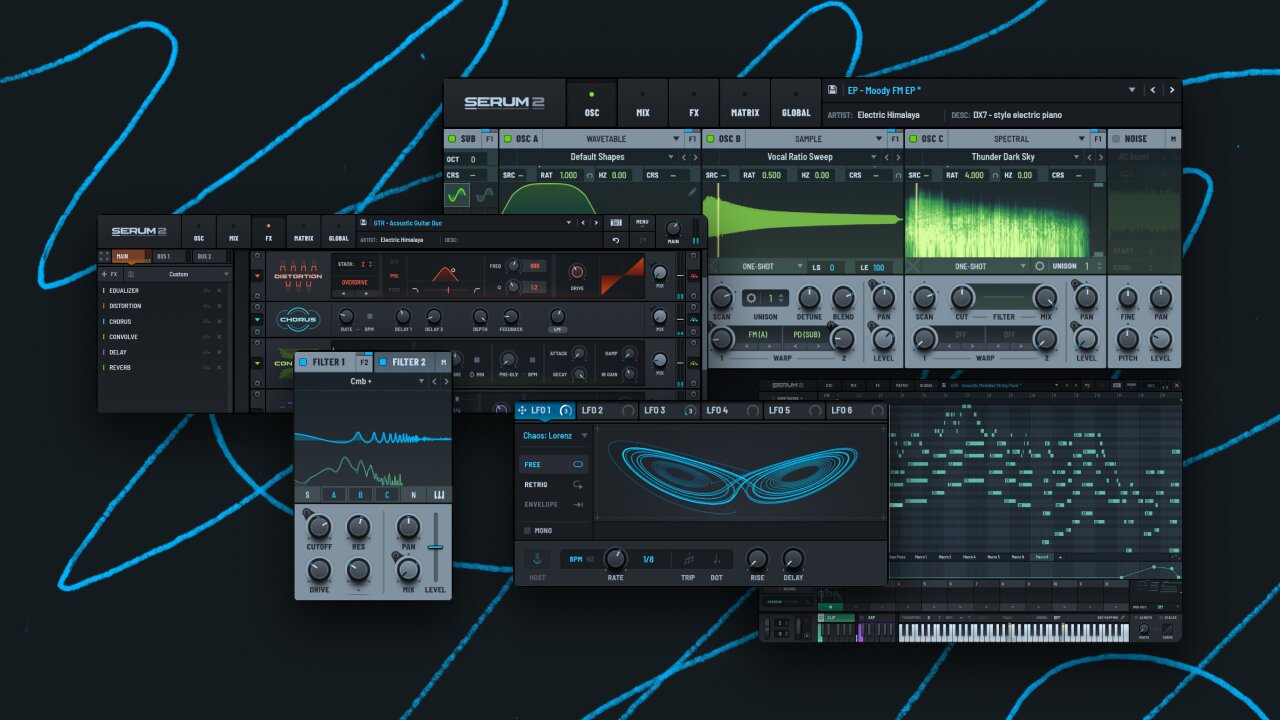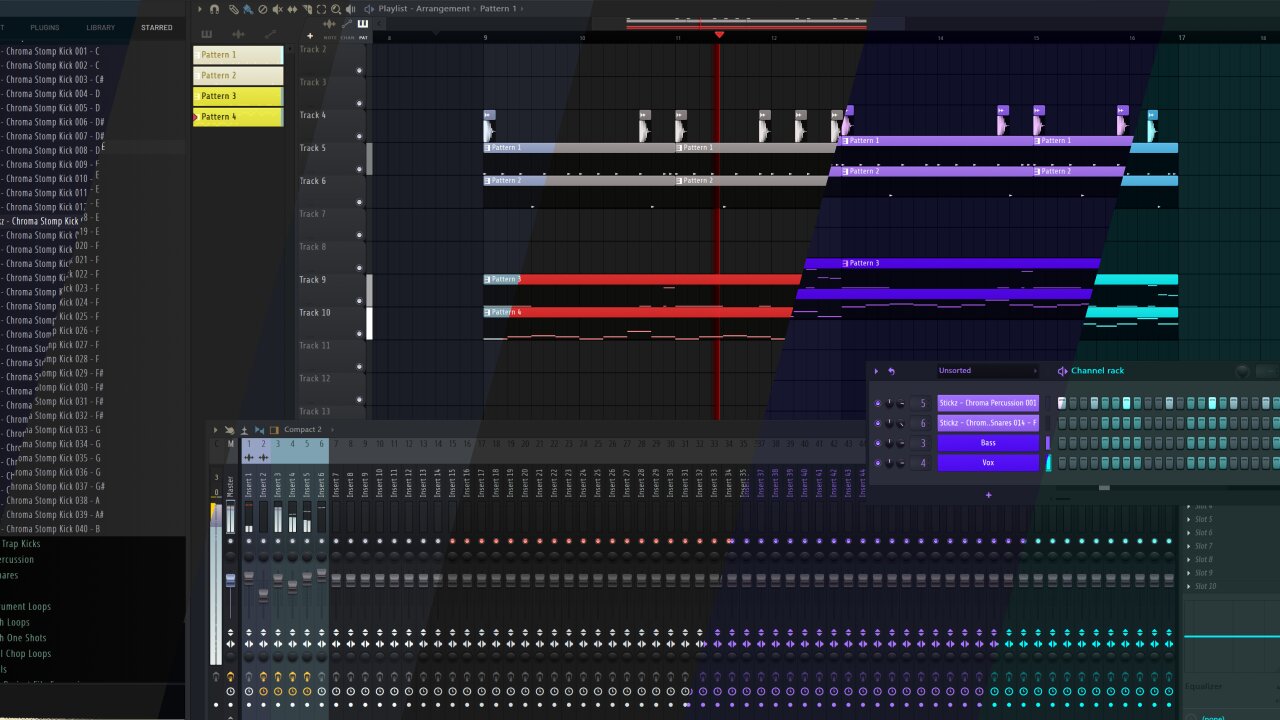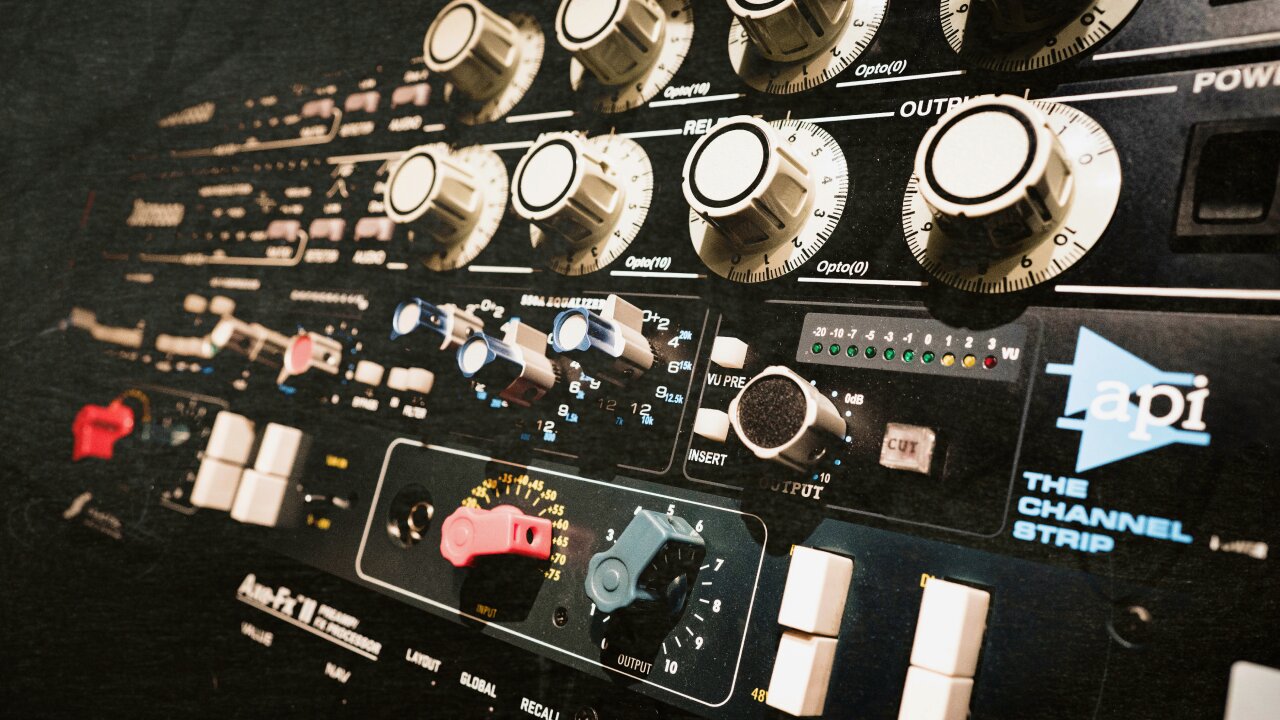The perfect demo submission to record labels (7 tips)
Sending a demo can be intimidating if you haven’t done it before. So here’s everything you need to know before you send your demo submission.
It can be tough to break into the music industry, but sending a demo submission to a record label is an excellent way to start. To make a good first impression, knowing what to include and how to package your demo is vital. You’ll also need to determine which label best fits your music.
1. Make sure your demo is actually ready.
This seems like an obvious first step, but you’d be surprised how many people send demos that aren’t actually ready. So before you send anything, make sure your music sounds the best it can sound. It should be thoroughly mixed, mastered, and arranged.
If you send unfinished songs, random demo ideas, or unmixed and unmastered demos, your chance of getting a reply from the label is slim to none. Think of it like this, if your demo submission is not the version that would be immediately ready for release, don’t bother sending it. Big labels receive hundreds of demos daily, so unfinished demos simply get skipped.
If you’re unsure whether or not your demo submission is ready, ask producer friends for feedback. A second set of ears can help fine-tune your track and make sure they’re a good representation of your music and you as an artist.
2. Do your research on the label.
Not all record labels are the same. There are many different types of labels, from major to independent and everything in between. Each label has a different focus, and they’re all looking for different types of music.
So do your research before you send your demo submission to a label. Find out what type of music they typically release and whether or not your demo fits the same style and genre. No matter how good your demo submission sounds, if you send your future bass demo to a deep house label, chances are they will not be interested.
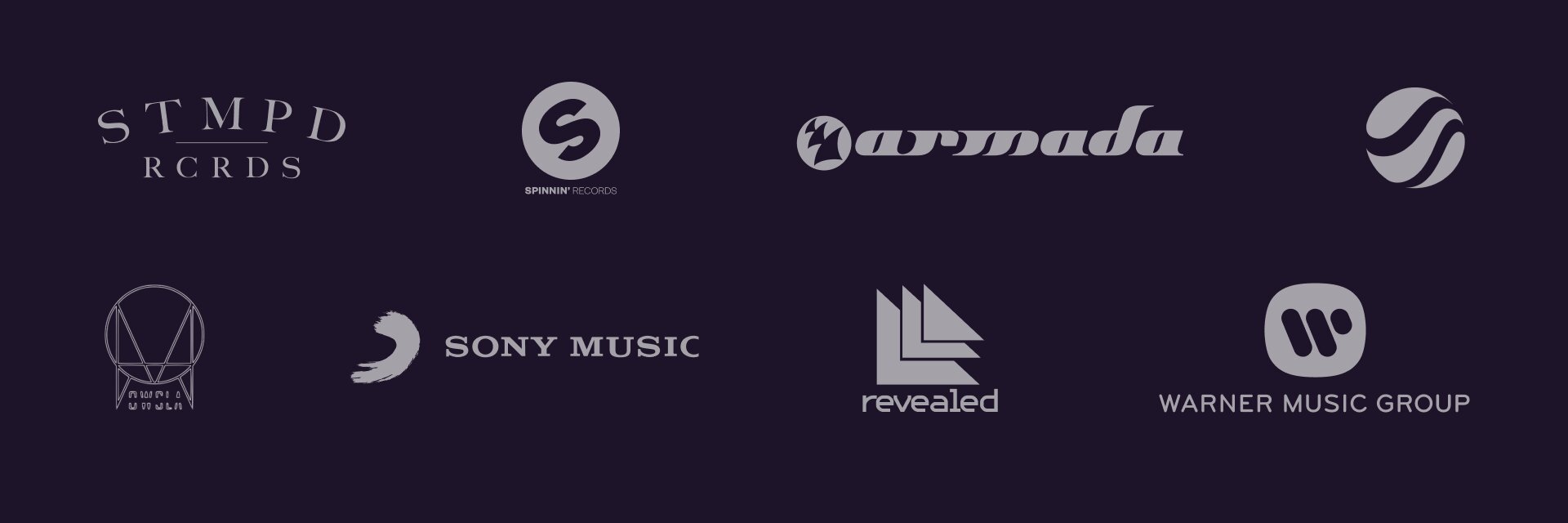
3. Submit via the official demo submission form or email.
Many of the big labels do not even have a demo submission email anymore. Instead, they often use a form you fill out with all your required details. This makes the submission process much easier since the label gets precisely what they need—compared to you sending a cold email.
So if a label has a demo submission form, use it. Don’t waste your time emailing their support or sending them a DM on social media. You’ll just annoy the employees of the label and get ignored anyway.
Also, make sure you read their demo submission policy. Here are a few standard rules that most labels want you to follow:
- 99% of labels are not looking for remixes or mashups. They are looking for new, fresh, and original music.
- Ensure your song does not include any uncleared loops or samples that you do not have permission to use.
- Some labels require you to send your demo submission exclusively to them—meaning you may only send your demo submission to that one label.
- Do not follow up. Most labels make it clear that if they want your demo, they’ll get in touch with you. Following up on a submission or re-submitting the same demo is a big no-no.
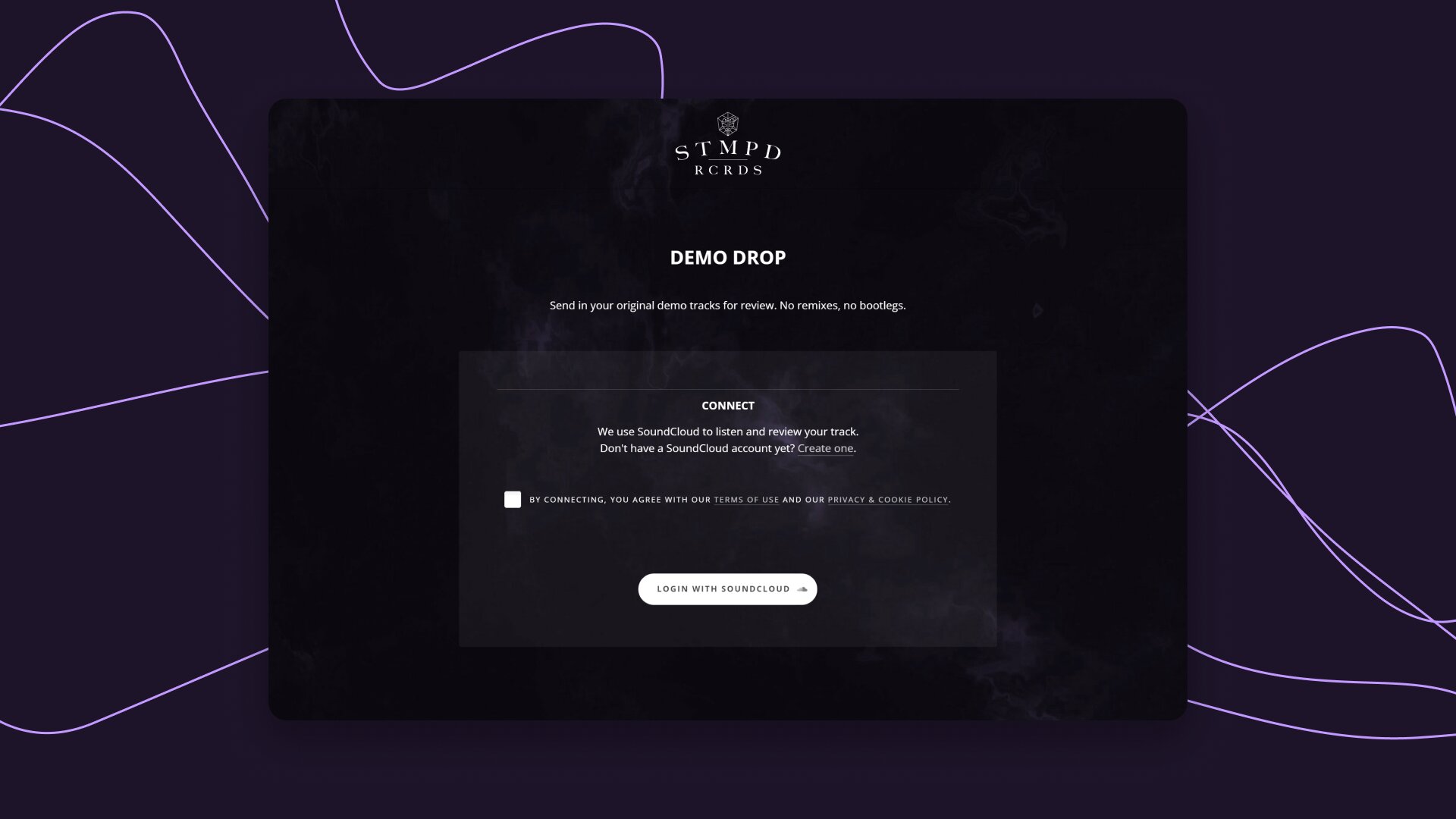
4. Send the perfect email. (Free Template)
If you do have to email a label, make sure you use the actual demo submission email. Don’t bother emailing their support, an employee, or messaging their social media team. If they have a demo email, that’s where they want the demos and nowhere else.
Send them a short and sweet email with all the required information. If the label provides a list of required details they want you to include in your email, that’s perfect. Follow their list closely. If not, here’s what you should pay attention to.
Make sure your email and the subject line are attention-grabbing. The label receives hundreds of emails daily, so you want yours to stand out. A good subject line is short, sweet, and to the point (e.g., “New future bass track for release”).
In the email, include a short bio about yourself and your music. However, keep it short. Very short. The label does not need your life story; they just want to know a little bit about you and what kind of music you make.
If you have released music on other big labels before, won a remix competition, have a popular song with many streams, or worked with other big artists in the past, mention it shortly. Accomplishments like these can help you come off more credible.
Include a link to your demo in the body of the email and make sure it’s streamable and downloadable. You can use SoundCloud or Dropbox for this. If you use SoundCloud, you’ll have to make sure you upload it privately to the platform and enable the download option manually. Also, ensure you upload a high-quality MP3 file to keep the file size small. Do not upload big WAV files in case they do want to download your demo submission.
Unless the label asks you to, do not send them your song as an attachment! This will clog up their inbox, so most labels have email filters that auto-delete those submissions.
Here’s an example email of what a demo submission to San Holo’s label Bitbird could look like. Short, sweet, and straight to the point.
Subject: New future bass track for release
Hi Bitbird Demo Team 👋
I’m John Doe (25) from Denver. I have 8 years of producing experience (mainly Future Bass and Pop) and have previously released songs on OWSLA and worked with artists like Flume.
Demo stream and/or download: https://dropbox.com/yourdemolink/
The heavy yet catchy vocal chops in the drop truly make this track unique and so sick. I think it’s a perfect fit for Bitbird.
Thanks for listening. I hope to hear back soon.
Kind regards,
John Doe (+ ARTIST NAME)
PHONE
WEBSITE (if available)
Of course, make sure you do not copy this example one by one but rather tailor it to your own demo, bio, and details. We highlighted details you should personalize in purple, but ensure you further personalize this template. Like, don’t mention you worked with Flume when you haven’t. This example should give you an idea of what a short and straight-to-the-point demo submission email can look like.
5. Wait for a response.
Now, all you can do is sit back and wait for a response from the label. Unfortunately, the waiting game is often the hardest part since most labels will not get back to you—no matter how good your demo submission is.
This is because they simply do not have the time to provide feedback to everyone. That’s why you must send your demo to multiple labels simultaneously (if labels allow that). This way, you increase your chances of getting a response since you’re not betting all on one label.
It can take anywhere from a few weeks to a whole month for a label to get back to you. So, don’t send them a follow-up email or message asking for feedback after a few days. This will only annoy them and make them less likely to want to sign you. In fact, you shouldn’t follow up or re-submit your demo at all. If you haven’t heard back in 30-days, consider your demo submission rejected and move on to the next label.
6. Submit to the same labels.
The best way to increase your chances of getting signed by a label is by building a strong relationship with them. The more they get to know you and your music, the more likely they will sign you.
So if a label rejected a previous demo of yours, don’t take that as an “I can’t get on this label” and rather keep submitting your next demos to the same label. The A&R’s will notice. Especially when your past demos were great and have just barely missed their expectations or quality standard, being consistent with new demos is the key to getting the label’s attention.
However, do not spam. So don’t send a demo every day, or even worse, submit the same demos repeatedly. That’s the quickest way to not get your demo signed.
7. Don’t give up.
The music industry is a tough business, and the path to success is often long and filled with obstacles. So don’t give up on your dream of getting signed just because you got rejected a few times.
If you genuinely believe in your music and are willing to put in the work, anything is possible. Getting signed by a record label is not the only way to succeed in the music industry. There are many other ways to make a living off your music.
So don’t get discouraged, and keep working hard on your craft. Who knows, maybe your big break is just around the corner. But even if it isn’t around the corner, being patient, determined, and consistent will get you there. Slow and steady wins the race.
Also, it’s 2022. You don’t need a record label to be successful. There are tons of independent artists absolutely crushing it right now. So if you strongly believe in your rejected demo, why not put it out yourself?
